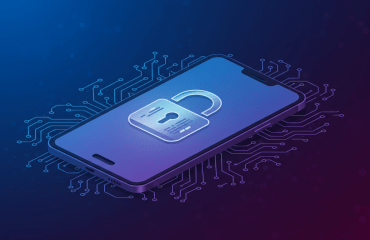advertising
With the advance of technology and the increased capacity of smartphones, we have become increasingly dependent on these devices to carry out a variety of daily tasks. However, as we add more apps, files and data, our phones can start to experience slowdowns, lack of space and, in some cases, virus infections. Apps that promise to clean up memory and remove threats are increasingly popular, but it's important to know which ones are really effective. In this article, we'll explore the best apps to keep your phone running optimally.
Understanding the Need for Memory Cleaning
Modern smartphones come equipped with a considerable amount of memory, but even the largest capacity can quickly be consumed by applications, photos, videos and other files. It's common for users to accumulate temporary data or caches that take up unnecessary space. Keeping the memory clean not only frees up space, but also improves the overall performance of the device.
advertising
Caches are temporary files created by applications to improve speed when opening the application. Although they are useful, over time they can become bulky. In addition, many applications create duplicate or unnecessary files, which also take up valuable space. A good memory cleaning application can identify and remove these files, giving you smoother performance.
Another crucial factor is that regular memory cleaning can extend the life of the device. When the phone is constantly under stress due to lack of space, its hardware is forced to work harder, which can lead to faster wear and tear. Therefore, keeping the memory clean and tidy is essential for the longevity of the device.
In addition to physical space, RAM can also become overloaded with too many applications running. Cleaning applications not only help free up physical space, but also manage RAM by closing applications that are not in use and freeing up resources for more important tasks.
Popular Memory Cleaning Apps
There are several applications on the market that promise to help clean up your phone's memory, but it's essential to choose those that are reliable and effective. Among the most popular are CCleaner, Files by Google and SD Maid. Each of these applications has specific features that can meet users' different needs.
CCleaner, for example, is widely known and used on computers and is now also available for smartphones. It offers options for cleaning cache, temporary files and browsing history. In addition, it allows you to manage applications and free up RAM efficiently, offering a clear and easy-to-use control panel.
Files by Google is an excellent choice for those looking for simplicity and efficiency. This application not only helps to free up space by identifying large and duplicate files, but also organizes your files in an intuitive way. The user-friendly interface makes it easy to use, even for less experienced users, and keeps your phone running smoothly.
SD Maid is another powerful application that offers deeper cleaning. It not only removes unwanted files, but also scans and cleans residual data after uninstalling applications. With advanced functions such as database cleaning and storage management, SD Maid is ideal for users who want more detailed control.
Regardless of the application you choose, it is important to always download these tools from trusted sources, such as the Google Play Store or the App Store, to avoid installing malicious applications that could compromise your device's security.
Protecting your phone from viruses and malware
In addition to cleaning the memory, protecting your phone against viruses and malware is essential to ensure your security and privacy. With the growing sophistication of cyber attacks, smartphones are increasingly common targets. Antivirus applications are an additional layer of protection, checking for and eliminating potential threats.
Avast Mobile Security is one of the most popular antivirus applications and offers a full range of functionalities, including virus scanning, protection against malicious websites and even anti-theft features. It is easy to use and offers a free version that covers most basic security needs.
Another reliable application is Bitdefender Mobile Security. Known for its effectiveness in detecting and removing threats, Bitdefender provides real-time protection and includes features such as app blocking, safe browsing and a privacy feature that checks whether your email accounts have been compromised.
Norton Mobile Security also deserves a mention. In addition to virus protection, it offers features to block unwanted calls and protect your personal information. The interface is intuitive, and the application is lightweight, ensuring that it doesn't consume too many of your phone's resources while keeping the protection active.
It's important to remember that although antiviruses are effective tools, the best protection is prevention. Avoiding downloading applications from unreliable sources, keeping the operating system up to date and being cautious when clicking on suspicious links are essential practices for keeping your phone safe.
The Impact of Apps on Mobile Phone Performance
While cleaning and antivirus applications are important for cell phone maintenance, it is crucial to understand the impact they can have on the device's performance. Many users worry that adding more apps will slow down their phone, but in reality, these apps are designed to improve performance.
Cleaning applications, when used correctly, can free up space and RAM, resulting in a faster and more responsive operating system. However, it is important to avoid overusing these tools. Frequent and unnecessary cleaning can have the opposite effect and end up damaging your phone's performance.
Likewise, antivirus applications can consume considerable resources, especially if they are configured for frequent automatic scans. Adjusting settings to balance security and performance is key. Weekly or monthly scans are usually enough to keep the device protected without sacrificing speed.
In addition, many applications offer additional features that can be disabled to reduce resource consumption. For example, disabling unnecessary notifications or features that you don't use can make a significant contribution to improving the overall performance of your phone.
Ultimately, the intelligent and balanced use of these maintenance and security tools is the key to ensuring that your smartphone works efficiently without compromising the security and integrity of your data.
Choosing the Right Application for Your Needs
With so many options available, choosing the right app to clean your phone's memory and protect it can seem like a daunting task. However, a few criteria can help simplify this choice. First, it's important to consider the specifics of your device and the type of use you make of it.
If you use a lot of applications and tend to store a lot of media files, an application with robust storage management functions, such as Files by Google, may be ideal. On the other hand, if you're more concerned about security and privacy, a complete antivirus application, such as Avast or Bitdefender, may better suit your needs.
Another factor to consider is the application's interface. An intuitive and easy-to-use design can be especially important for users who are not so tech-savvy. Apps that offer tutorials or customer support can provide a smoother experience.
It's also essential to check other users' reviews and the app's reputation in the official store. Reviews and ratings often reflect the user experience and can offer valuable insights into the effectiveness and reliability of the app. In addition, always check that the app is compatible with your device's operating system version.
Additional Tips for Keeping Your Cell Phone Clean and Safe
In addition to using apps, there are daily practices you can adopt to keep your phone clean and safe. One is to regularly uninstall applications you no longer use. This not only frees up space, but also reduces the security risks associated with outdated apps.
Another tip is to take care of application permissions. Many applications request access to information that is not necessary for their operation. Regularly review permissions and restrict access to sensitive data where possible. This helps protect your privacy and minimizes the risk of data leaks.
Keeping your phone's operating system up to date is another fundamental practice. Updates often include security patches that protect against new threats. Configure your device to install updates automatically or check regularly for the availability of new versions.
Finally, make regular backups of your data. In the event of loss or theft, or even if the device is infected by malware, having a backup ensures that your personal information and important files are not lost. There are several cloud storage options that make this process easier, such as Google Drive and Dropbox.
Conclusion
Keeping a smartphone clean and safe is essential to ensuring its optimal functioning and protecting your personal information. By using reliable applications for memory cleaning and virus protection, combined with safe usage and maintenance practices, you can prevent common problems and extend the life of your device. Choosing the application that best meets your specific needs is an important step, and regularly reviewing your security and storage practices can make a significant difference to your phone's performance and longevity.
FAQ
1. **Do cleaning apps really work?
Yes, when used correctly, they help free up space and improve device performance.
2. **Can I use more than one cleaning application at the same time?
This is not recommended, as it can cause conflicts and consume more resources than necessary.
3. **Is mobile antivirus really necessary?
Although Android and iOS have their own security measures, an antivirus can offer additional protection against more complex threats.
4. **Do cleaning apps affect your phone's battery?
Used sparingly, they shouldn't have a significant impact on battery life.
5. **What is the difference between clearing cache and clearing application data?
Cache are temporary files, while data includes login information and user settings.
6. **Is it safe to download third-party cleaning and antivirus applications?
Only if they come from reliable sources, such as the Google Play Store or the App Store.
7. **How do I know if my cell phone is infected with a virus?
Unusual slowness, intrusive ads and excessive data usage can all be signs of infection.
8. **What is the best memory cleaner application?
It depends on your needs, but CCleaner and Files by Google are popular and reliable options.
9. **How often should I clean my phone?
Monthly is usually sufficient, but can vary depending on use.
10. **Can cleaning applications recover deleted files?
No, they are designed to remove unnecessary files, not for recovery.
11. **Can cleaning apps remove viruses?
No, you need an antivirus application for that.
12. **How to free up RAM without using applications?
Closing background applications and restarting the device can help.
13. **Do system updates really help with security?
Yes, they often include important security fixes.
14. **Are cleaning apps necessary on iPhones?
iOS manages memory well, but organization apps can be useful.
15. **Should I pay for premium versions of cleaning and antivirus applications?
The free versions are usually enough for the average user, but the premium versions offer additional features that can be useful depending on your needs.



